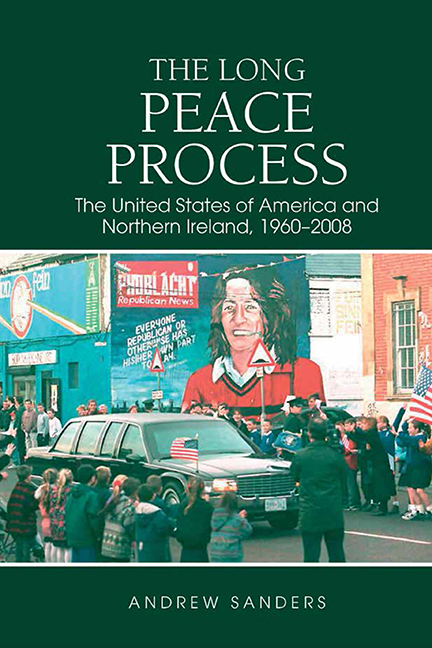Book contents
- Frontmatter
- Contents
- List of Abbreviations
- Acknowledgements
- Introduction
- 1 The USA and Ireland before 1968
- 2 The Early Years of the ‘Troubles’
- 3 Jimmy Carter and the Presidential Statement on Northern Ireland
- 4 Thatcher, Reagan, and Northern Ireland
- 5 The Bush Administration and Northern Ireland as a Local Political Issue
- 6 Bill Clinton and the Path to Good Friday
- 7 George W. Bush, Barack Obama, and Post-Conflict Northern Ireland
- Conclusion
- Select Bibliography
- Index
4 - Thatcher, Reagan, and Northern Ireland
- Frontmatter
- Contents
- List of Abbreviations
- Acknowledgements
- Introduction
- 1 The USA and Ireland before 1968
- 2 The Early Years of the ‘Troubles’
- 3 Jimmy Carter and the Presidential Statement on Northern Ireland
- 4 Thatcher, Reagan, and Northern Ireland
- 5 The Bush Administration and Northern Ireland as a Local Political Issue
- 6 Bill Clinton and the Path to Good Friday
- 7 George W. Bush, Barack Obama, and Post-Conflict Northern Ireland
- Conclusion
- Select Bibliography
- Index
Summary
Ireland was not really in the geopolitical thick of things in Washington and, despite what US census surveys might suggest, there were not 40 million Americans—or indeed any sizeable political community in the US—with any interest in what was happening in Ireland.
Sean Donlon, former Ambassador of the Republic of Ireland to the United States of AmericaI think from the middle of the decade onwards, the increasing American awareness of international terrorism as an issue with Libya, with the Berlin bombing, Leon Klinghoffer, all of those events in the mid-1980s alerted America to international terrorism in way that they perhaps hadn't been alerted before and made them at least wiser to what was going on in Northern Ireland and less sympathetic to the IRA as a result.
Sir Nigel Sheinwald, former Ambassador of the United Kingdom to the United States of AmericaOn 14 January 1989, as Ronald Reagan prepared to leave office, the Irish Times carried an article by the former Ambassador of the Republic of Ireland to the United States, Sean Donlon, entitled ‘Reagan's Irish Connection’. This article chronicled the relationship that outgoing President Ronald Reagan had with Ireland. This relationship stretched back to the 1940s when Reagan, in his capacity as a Hollywood representative, first visited Ireland. Later, as Governor of California in the 1970s, Reagan visited Ireland on behalf of President Nixon and travelled the south and west of the country, stopping at the Rock of Cashel. Donlon suggested that Reagan's ‘interest in Ireland went deeper than sentiment and story. The challenge for Ireland was to channel that interest to advantage, knowing that there was likely to be an especially close relationship with his ideological soul-mate at No 10 Downing Street’. Later, Donlon recalled his own role in Reagan's relationship with Ireland: ‘During the campaign I went to see Reagan to ask him what part of Ireland he came from, where his family came from. ‘No, no’, he said, ‘my people were not Irish, we’re English’. He believed it and he was absolutely right, he got his brother, who was a doctor, to give me copies of family papers and, right enough, it showed, as far back as they were able to go was to the UK’.
- Type
- Chapter
- Information
- The Long Peace ProcessThe United States of America and Northern Ireland, 1960-2008, pp. 139 - 184Publisher: Liverpool University PressPrint publication year: 2019



